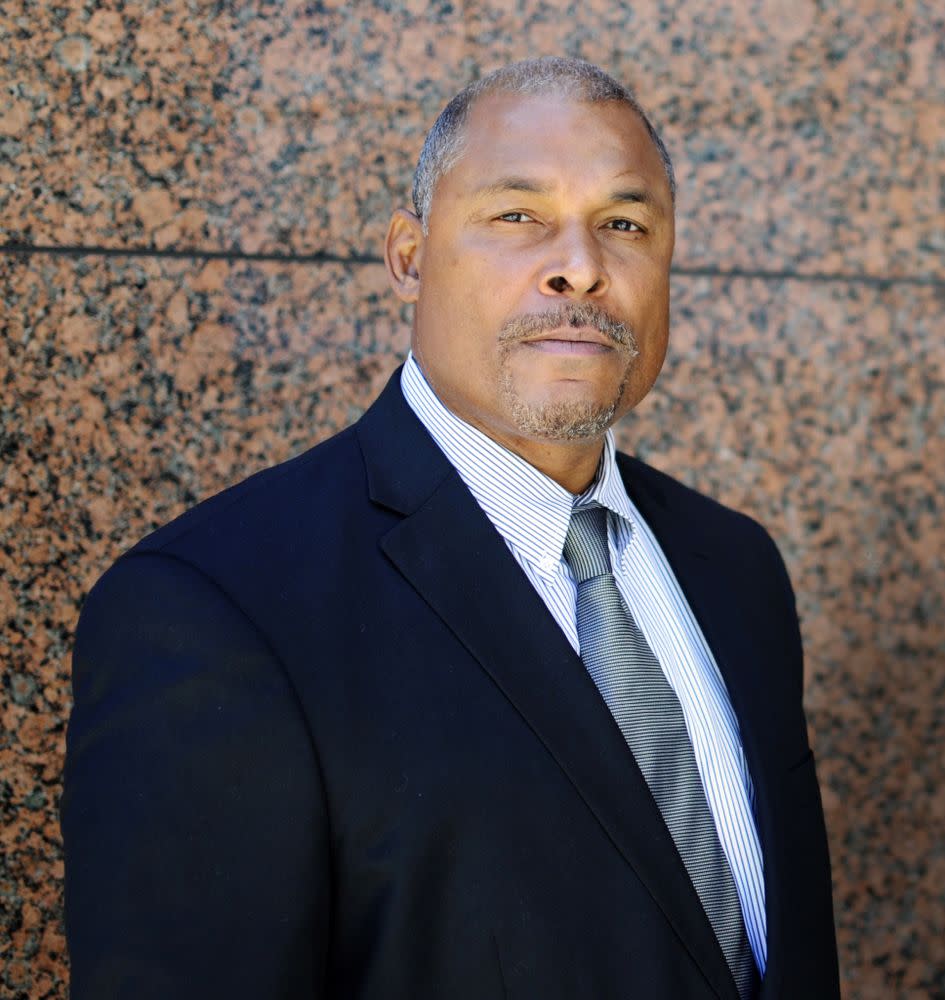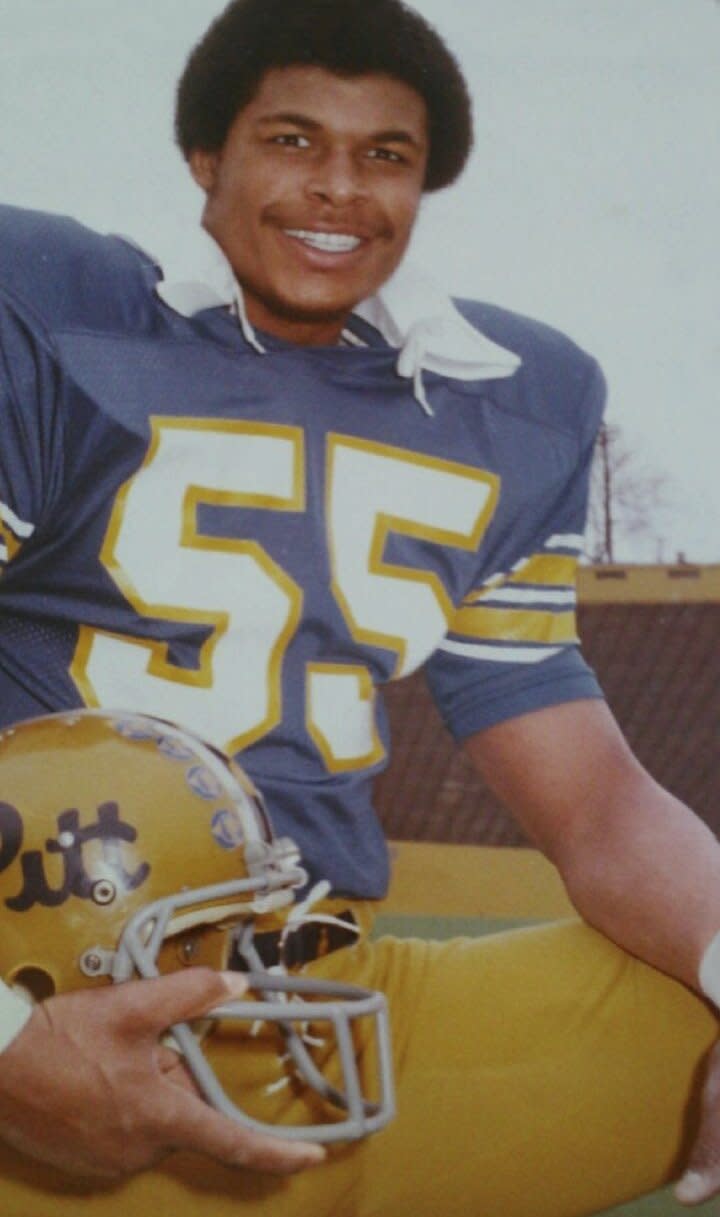Ex-NFL Star Sexually Abused as Teen Speaks Out After Michael Jackson Documentary: 'I Felt Complicit'
Former NFL standout Al Chesley was 13 when he says a neighborhood police officer began to sexually assault him.
Compelled by his abuser to keep the acts — and his shame — a secret, “I felt complicit,” Chesley, now 61, tells PEOPLE after he watched the HBO documentary Leaving Neverland, which explored male child sexual assault allegations against pop icon Michael Jackson. He later joined with other survivors for an Oprah Winfrey special, After Neverland, on the documentary’s themes.
The film has opened a wider conversation. “For too long the topics of male sexual assault and abuse have been considered socially taboo,” says Matthew Ennis, president of the advocacy and support nonprofit 1in6, named for the estimated percentage of men who experience sexual violence in their lifetime, according to the Centers for Disease Control.
For Chesley, it was a truth he hid for more than 30 years, during which he achieved fame as linebacker for the NFL’s Philadelphia Eagles, a tenure that included his team’s appearance in the 1981 Super Bowl.
Yet all the while he remained haunted by the assaults he experienced over several years while he was a teen. “It stunts your ability to grow, because you spend so much time with the thought of what happened, and it always plays back in your mind,” he says.
He initially knew the policeman only as “Officer Friendly,” a visible presence in Chesley’s Washington, D.C. neighborhood at high school sporting events and other activities.
Addressing the documented ritual by which abusers find and target potentially vulnerable youth, Chesley recalls, “the ‘grooming’ process for me was just [the officer] being there and being nice and interested in me, and telling me I’m special.”

One day as Chesley walked from his home to the Eastern District Boys Club about two blocks away, the officer offered him a ride — and then detoured to his apartment, where the first encounter took place. As part of the assault, the officer took photographs that Chelsey feared might later surface, and which contributed to the teen’s anguished silence.
• For more on the fallout from the HBO documentary Leaving Neverland and the child sex abuse allegations against Michael Jackson, subscribe now to PEOPLE or pick up this week’s issue, on newsstands Friday.
“When it happened, I felt so complicit in the fact that I took my body there,” says Chesley. “I didn’t know that when someone has sex with a child, that’s illegal.”
“It’s just such an embarrassing thing. Your first sexual act as a man — you relive it every time you tell that story. I could still smell the stench of his cologne and the smell of his apartment today when I talk about it.”
“He said, ‘This is our little secret.’ He started giving me little gifts and things, like 20-40 dollars. I knew that it wasn’t right, but still he didn’t physically hurt me, I was able to leave. And he would always say, he gave me a number, ‘Call me if you need money or anything.’ He would always show up at these different places. He knew my schedule, wherever I would be.”
Even as a teen Chesley started to question his heterosexual masculinity. “Instead of one girlfriend, I felt like I had to have three,” he says.
Such panic and doubt is common among male victims, trauma psychologist Howard Fradkin tells PEOPLE, and it adds to the shame and secrecy survivors take on. “Healing is about releasing the shame,” he says. “If you say, ‘This is something that was done to me by someone with more power,’ you put the responsibility where it belongs.”
• Want to keep up with the latest crime coverage? Click here to get breaking crime news, ongoing trial coverage and details of intriguing unsolved cases in the True Crime Newsletter.
The assaults continued until Chesley left home for college at 18. The burden of suppressing something he didn’t ever want to admit to others doomed Chesley’s later relationships, he says, and he never married.
Anxiety and self-loathing caused him to “self-medicate” with alcohol, he says. But as he realized what was happening, at age 50 he finally walked into an anonymous self-help group — and a month later, inspired by the stories of other survivors working to shift blame from themselves to their abusers, he went public in 2008 to support a Delaware law removing the statute of limitations on sex assaults against children.
He eventually entered a local D.C. police precinct and named his alleged abuser to a desk officer — he feared for other possible victims — but was told the statute of limitations had expired, and no charges were ever brought against the man.
Now Chesley assists with efforts to reform those laws, and shares his story to help organizations working in the areas of trauma and child advocacy, and against human trafficking.
“Do I want go out and be a vigilante? No,” he says. “I’m not saying forgive that abuser, but forgiveness is just giving up the thought that the past could be any different.”
“I feel like I’m living my best life today,” he says. “My big message is, it’s never too late to get help for your child sexual abuse. There’s a lot of people like I was, still going to carry it to their grave.”
“Getting an interception in pro football and the whole stadium cheers, the glory of being an NFL player … all that pales in comparison with what I’m doing now, trying to give kids a warm and safe childhood.”
If you or someone you know has had an unwanted sexual experience, 1in6 has a 24/7 helpline staffed by advocates trained to work with men that can be reached at 877-628-1in6.


